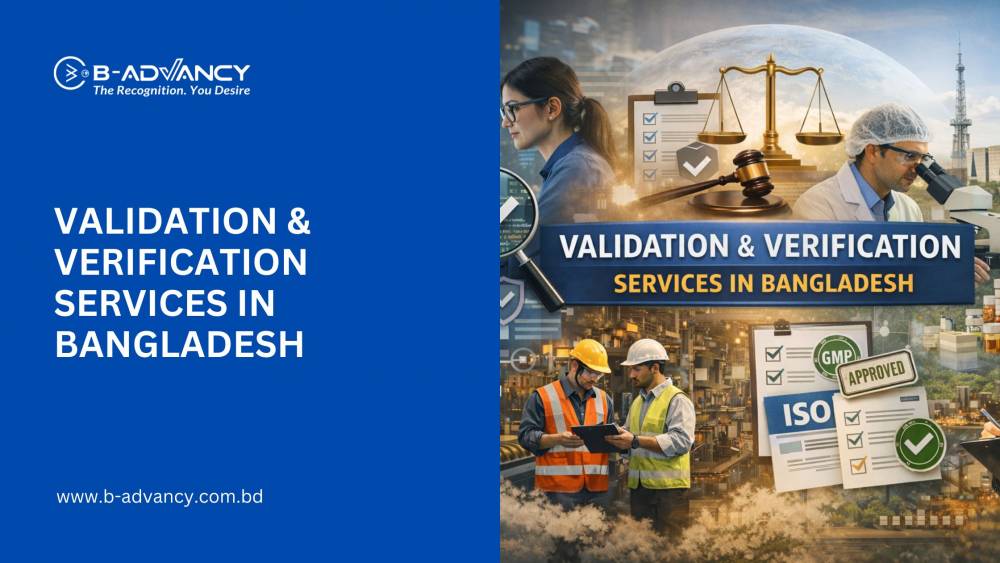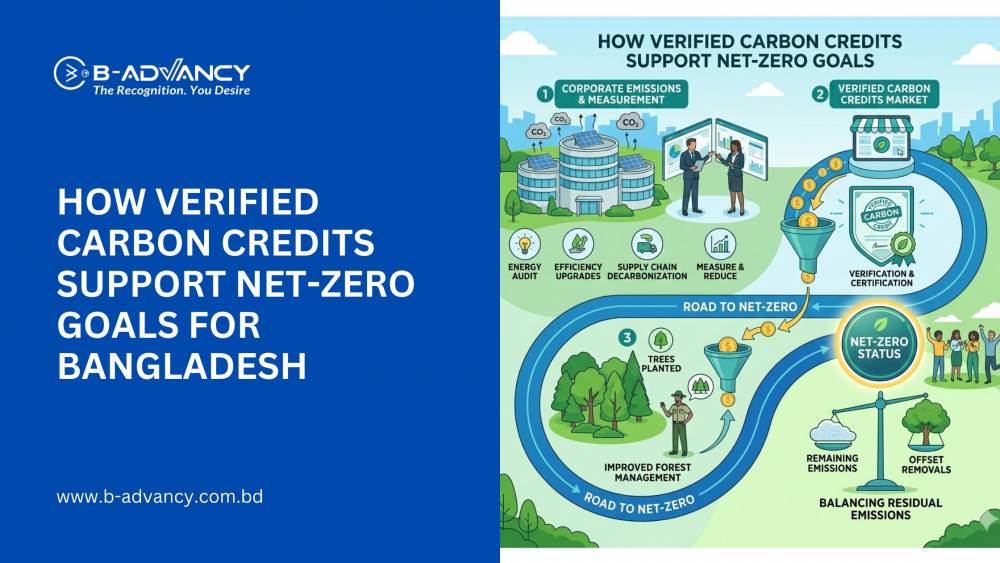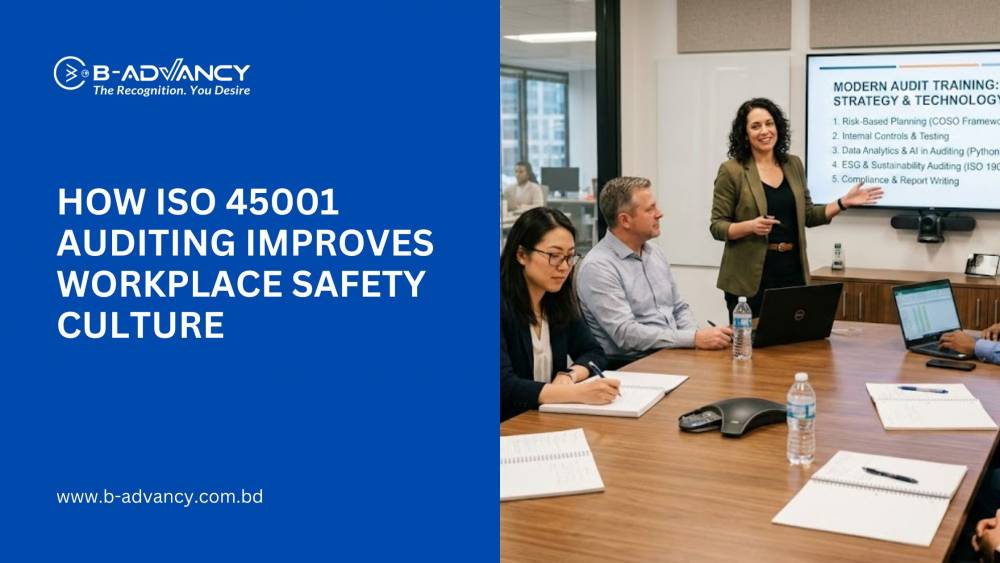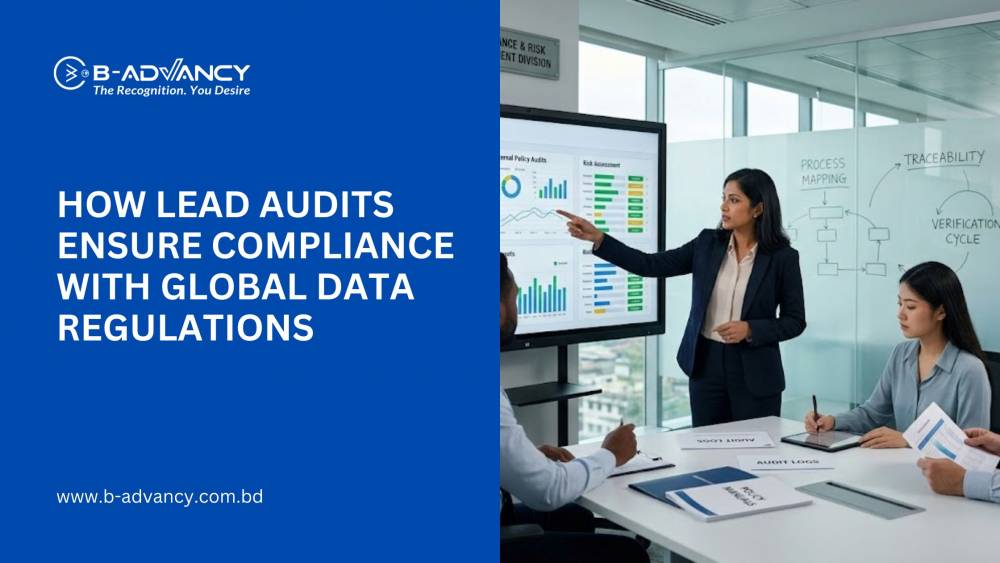In today’s global business environment, transparency, ethics, and integrity are vital components of a successful and reputable organization. Bribery and corruption, however, pose significant risks to businesses and economies worldwide, including Bangladesh. To mitigate these risks and promote ethical practices, many organizations are turning to ISO 37001:2016, the international standard for Anti-Bribery Management Systems (ABMS). This certification provides a comprehensive framework for preventing, detecting, and addressing bribery, helping businesses foster a culture of integrity and compliance. In this blog, we will explore the importance of ISO 37001:2016 certification in Bangladesh, its benefits, and how organizations can implement and achieve this certification.
What is ISO 37001:2016 and Why is it Important?
ISO 37001:2016 is a globally recognized standard designed to help organizations implement effective anti-bribery management systems. It provides a framework for establishing policies, procedures, and controls aimed at preventing, detecting, and responding to bribery in all forms—whether it occurs within the organization or externally with partners, suppliers, or third parties.
This standard applies to organizations of all sizes and sectors, making it particularly relevant for businesses operating in industries prone to corruption or in countries where bribery risks are high. In Bangladesh, where issues related to corruption have been a concern, ISO 37001:2016 certification is an essential tool for companies looking to build trust, protect their reputation, and ensure compliance with local and international anti-bribery laws.
Key Features of ISO 37001:2016
-
Anti-Bribery Policy
ISO 37001:2016 requires organizations to implement a clear and documented anti-bribery policy, which must be communicated to employees, contractors, and business partners. This policy sets the tone for zero-tolerance toward bribery and corruption. -
Risk Assessment
The standard emphasizes the importance of conducting a comprehensive risk assessment to identify and assess the potential bribery risks the organization may face. Based on this assessment, appropriate controls can be implemented to mitigate these risks. -
Due Diligence
ISO 37001:2016 requires organizations to conduct due diligence on business partners, suppliers, and third parties to ensure they comply with anti-bribery policies. This helps reduce the risk of associating with individuals or entities involved in corrupt practices. -
Training and Awareness
The standard mandates regular anti-bribery training for employees, management, and stakeholders. This ensures that everyone in the organization is aware of the risks, policies, and procedures related to bribery. -
Monitoring and Auditing
ISO 37001:2016 emphasizes the need for ongoing monitoring, internal audits, and reviews of the anti-bribery management system to ensure its effectiveness. Organizations must continuously improve their systems and address any weaknesses. -
Reporting and Investigation Procedures
The standard outlines the need for organizations to establish clear procedures for reporting suspected bribery incidents and conducting thorough investigations. Whistleblower protections should also be in place to encourage reporting without fear of retaliation.
Why ISO 37001:2016 Matters for Bangladesh
Bangladesh has made progress in tackling corruption, but challenges remain, particularly in sectors such as construction, manufacturing, and public services. Bribery can undermine economic growth, hinder foreign investment, and damage the country’s global reputation. For businesses operating in Bangladesh, adopting ISO 37001:2016 is a proactive step toward addressing these issues.
ISO 37001:2016 certification can help Bangladeshi organizations build a culture of integrity, reduce the risk of bribery-related legal penalties, and enhance their reputation with customers, partners, and regulators. As Bangladesh aims to strengthen its regulatory environment and attract more foreign investment, businesses that achieve ISO 37001:2016 certification will have a competitive edge by demonstrating their commitment to ethical practices.
Benefits of ISO 37001:2016 Certification in Bangladesh
-
Reduced Risk of Bribery and Corruption
ISO 37001:2016 provides organizations with a structured approach to identifying and managing bribery risks. By implementing strong anti-bribery controls, businesses can reduce the likelihood of bribery incidents and their associated legal, financial, and reputational consequences. -
Compliance with Local and International Laws
In Bangladesh, the Anti-Corruption Commission (ACC) is responsible for enforcing anti-corruption laws, and non-compliance can result in significant penalties. ISO 37001:2016 helps organizations comply with these laws, as well as international anti-bribery legislation such as the UK Bribery Act and the U.S. Foreign Corrupt Practices Act (FCPA). -
Enhanced Corporate Reputation and Trust
Achieving ISO 37001:2016 certification sends a strong message to stakeholders, including customers, investors, and business partners, that the organization is committed to ethical conduct and zero tolerance for bribery. This can help enhance trust, build long-term relationships, and strengthen the company’s market position. -
Improved Internal Controls and Governance
Implementing ISO 37001:2016 helps organizations strengthen their internal controls and governance processes, making them more resilient against bribery risks. This can also lead to improvements in overall operational efficiency and risk management. -
Access to International Markets and Business Opportunities
Many multinational corporations and governments require suppliers and contractors to be ISO 37001:2016 certified as a condition for doing business. By achieving this certification, Bangladeshi organizations can open doors to international markets and business opportunities that would otherwise be out of reach.
Local Regulations and Government Support for Anti-Bribery Initiatives
The government of Bangladesh has been working to combat corruption and improve transparency in both the public and private sectors. The Anti-Corruption Commission (ACC) of Bangladesh plays a crucial role in investigating and prosecuting bribery and corruption cases. The government’s commitment to addressing corruption has been further strengthened by various laws and regulations, including the Anti-Corruption Act, 2004.
Organizations seeking to align with Bangladesh’s anti-corruption efforts can benefit from ISO 37001:2016 certification by demonstrating compliance with local regulations and international best practices. To learn more about Bangladesh’s anti-corruption laws and the role of the ACC, visit the Anti-Corruption Commission (ACC) website.
Steps to Achieve ISO 37001:2016 Certification
-
Initial Assessment and Gap Analysis
Conduct a thorough assessment of your organization’s current anti-bribery policies and procedures. Identify any gaps in compliance with ISO 37001:2016 requirements and develop a plan to address them. -
Develop and Implement an Anti-Bribery Management System (ABMS)
Establish an ABMS that aligns with ISO 37001:2016, including clear anti-bribery policies, risk assessment procedures, due diligence processes, and reporting mechanisms. Ensure that all employees and stakeholders are aware of the policies. -
Provide Training and Awareness
Conduct regular training sessions for employees, management, and partners to ensure they understand their roles and responsibilities in preventing bribery. This is crucial for building an ethical corporate culture. -
Conduct Internal Audits and Reviews
Regularly monitor and review the effectiveness of your ABMS through internal audits. Address any areas of weakness and continuously improve your system. -
Select a Certification Body
Choose a reputable certification body, such as B-ADVANCY Certification Limited, to conduct an external audit of your ABMS. This independent audit is necessary to achieve ISO 37001:2016 certification. To contact them: Email: bangladesh@b-advancy.com | Call: +8801612264559 -
Achieve Certification and Maintain Compliance
After passing the external audit, your organization will receive ISO 37001:2016 certification. It’s important to maintain and update your ABMS regularly to ensure ongoing compliance and effectiveness.
Conclusion
ISO 37001:2016 certification is a powerful tool for organizations in Bangladesh seeking to strengthen their anti-bribery efforts and enhance their reputation for integrity and ethical conduct. By implementing this globally recognized standard, businesses can reduce the risk of bribery, comply with local and international regulations, and build trust with stakeholders. As Bangladesh continues to combat corruption and promote transparency, ISO 37001:2016-certified organizations will play a critical role in fostering a more ethical business environment.


12.jpg)



































































































































































































